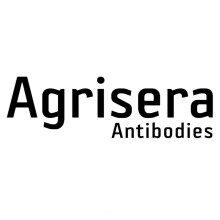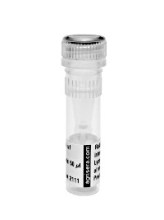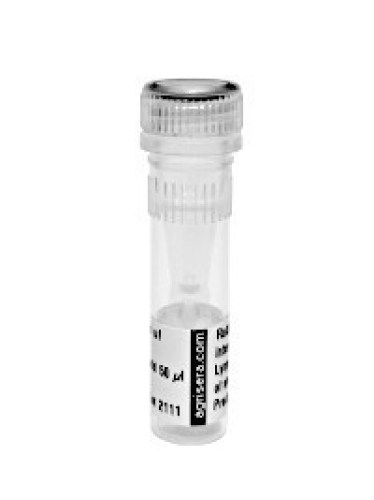
Anti-AtpD | CF1 delta subunit of ATP synthase
(Cat#: AS10 1591)
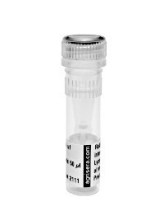
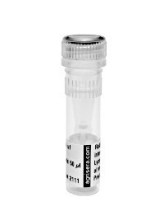
Description
- Immunogen: isolated CF1 subunit of the chloroplast ATP synthase complex from Spinacia oleracea, UniProt: P11402.2
- Host: Rabbit
- Clonality: Polyclonal
- Purity: Serum
- Format: Liquid
- Quantity: 100 µl
- Storage: Store at at Store short-term 4°C, Long-term -20°. Repeated freezing and thawing is not recommended.
- Tested applications: Western blot (WB)
- Recommended dilutions: 1 : 2000 (WB)
- Expected | apparent MW: 23 kDa
- Confirmed reactivity: Higher plants, Helicobacter pylori, Synechocystis sp. PCC 6803
- Not reactive in: No confirmed exceptions from predicted reactivity are currently known
- The chloroplast ATP synthase belongs to the family of F1-type ATPases, which are also present in bacteria and mitochondria. ATP synthase generates ATP from ADP and inorganic phosphate using energy derived from a trans-thylakoidal electrochemical proton gradient.
- Blair et al. (2018). The Helicobacter pylori cell shape promoting protein Csd5 interacts with the cell wall, MurF, and the bacterial cytoskeleton. Mol Microbiol. 2018 Jul 24. doi: 10.1111/mmi.14087.Fristedt et al. (2015). The thylakoid membrane protein CGL160 supports CF1CF0 ATP synthase accumulation in Arabidopsis thaliana. PLoS One. 2015 Apr 2;10(4):e0121658. doi: 10.1371/journal.pone.0121658.
- This product can be sold with ProClin if requested
Boca Scientific is your premiere source for high-quality, innovative solutions for Cell Biology, Molecular Biology, Immunology, genetics and other lab products and reagents. We bring leading-edge products from our own-line and around the world to laboratories in the US and Canada. Our goal is to offer excellent solutions to drive research and discoveries backed by superior customer support.

